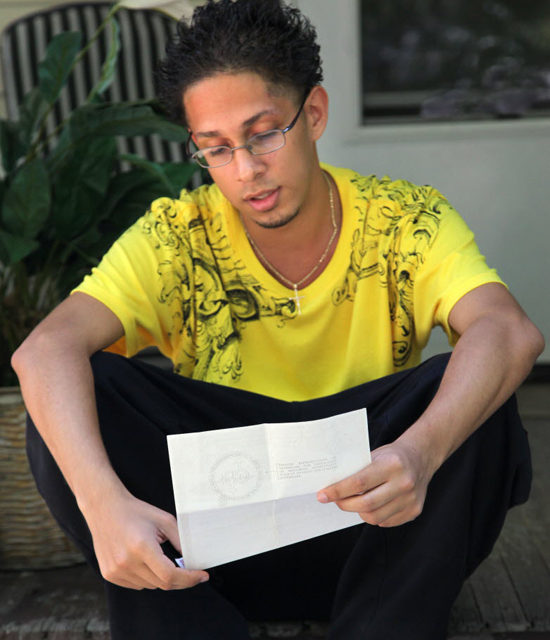
Cleveland resident Alfredo Jose Pagan needs a photo ID to register for his GED exam. But when he went to the license bureau, he was told his Puerto Rican birth certificate was unacceptable.
LatinoJustice PRLDEF has been informed by representatives of the Puerto Rico government that it will extend the validity of all island-issued birth certificates through the end of September, creating a three month transition period while officials begin issuing new certificates July 1.
In December 2009, the Puerto Rico legislature passed a law stating that all birth certificates issued before July 1, 2010 would have to be replaced, in effect invalidating the birth records of millions of island and U.S. mainland residents. LatinoJustice PRLDEF President and General Counsel Cesar A. Perales sent a letter to the governor pointing to numerous problems with the law, and urged the governor to create a six-month transition period to cope with confusion the law was causing for government officials and residents on the island and in the mainland United States.
In his letter to the Puerto Rico governor, Perales explained that at a time of growing anti-Latino sentiment and suspicion, this law only adds to the escalating mandate to document the identity of Latinos for obtaining jobs, driver’s licenses, and government benefits. (Arizona’s SB1070 law is one recent example of this).
“While the creation of this transition period alleviates some of the confusion created by the new law, it does not address the bigger problem of putting into doubt all documentation issued by the island of Puerto Rico,” Perales said.
“We still think it is very important that the government of Puerto Rico make a stronger effort to educate government officials and the general public about this law. There are 1.5 million people born in Puerto Rico who now live on the mainland, who need their birth certificates to do everything from registering for school to applying for passports. They should not have to endure any further hardships because of this poorly-timed policy.”
Though the law does not go into effect until July 1, major problems have arisen at department of motor vehicle offices around the mainland United States, creating serious hardships for Puerto Rico-born residents. In Georgia, a resident’s birth certificate was confiscated, and in Iowa, a resident was forced to meet with a private investigator and answer questions that “proved” she was Puerto Rican. California, Ohio and Nevada created policies effective before the law took place that would not accept birth certificates from Puerto Rico as proof of birth. (These policies have all since been revised).
People born in Puerto Rico, a U.S. commonwealth, are U.S. citizens at birth. Puerto Rico’s legislature said they passed the law after raids last March broke up a criminal ring that had stolen thousands of birth certificates and other identifying documents from several different schools in Puerto Rico.
For more information about the new birth certificates, including the text of the law, along with paper and electronic applications and fact sheets. visit the Puerto Rico Federal Affairs Administration’s website.





